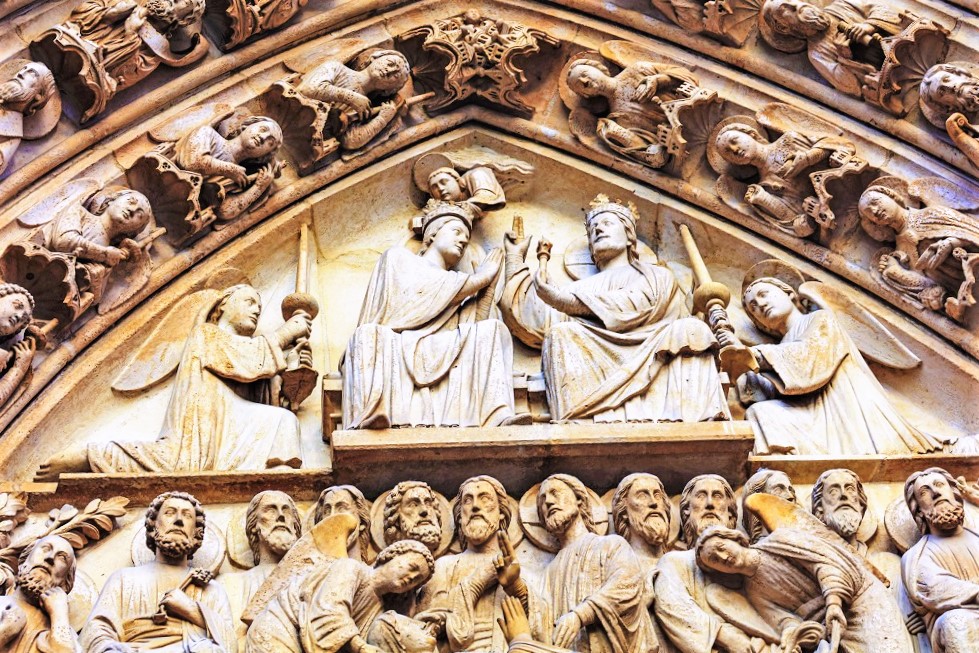Tomorrow, Catholics celebrate All Saints’ Day and Wednesday is the celebration of All Souls’. The Church knows that there are many holy men, women and children who will never be formally recognized as saints; the celebration of All Saints’ allows us to ponder our own destiny with the multitude of holy souls now enjoying God’s eternal love and presence. All Souls’ Day reminds us that, as Catholics, we never presume that someone is in Heaven, and our prayers for the dead are necessary and good. The Catechism states:
1054 Those who die in God’s grace and friendship imperfectly purified, although they are assured of their eternal salvation, undergo a purification after death, so as to achieve the holiness necessary to enter the joy of God.
1055 By virtue of the “communion of saints,” the Church commends the dead to God’s mercy and offers her prayers, especially the holy sacrifice of the Eucharist, on their behalf.
Catholics are often accused of praying to the dead (Ok, we kinda do that. It’s called “intercession.”) or worshiping the dead (No, we don’t.) While we understand that our earthly bodies with die, we know our soul is eternal. It is that soul which God created and has set in place for all eternity, made to be with Him forever.
At the core of the practice of praying to the saints is the belief that the saints are alive in Christ and full members of the community of believers, the Mystical Body of Christ. As St. Paul proclaims:
“For I am sure that neither death, nor life, nor angels, nor principalities, nor things present, nor things to come, nor powers, nor height, nor depth, nor anything else in all creation, will be able to separate us from the love of God in Christ Jesus our Lord.” (Rom 8:38-39)
When we live a life of grace and virtue, if you “put to death the deeds of the body,” then we will live (Rom 8:13). Yes, every person’s time on this earth must come to an end, but if we die in grace and righteousness, then we’ll live forever with God in heaven. The fact that the God of Abraham, Isaac, and Jacob – prophets who died a long time ago – can still be declared by Jesus to be the God of the living (cf. Mt 22:32) is proof that the saints are very much alive. [emphasis added]
In 1938, jazz legend Louis Armstrong recorded, “When the Saints Go Marching In.” Like many Gospel and jazz songs, the origins of this song are unclear, and there are several versions of it. However, the jazz version remains the best known. It is a “folk version” of our wish to join in the heavenly “parade” of holy men, women and children:
- Oh, when the trumpet sounds its call
- Oh, when the trumpet sounds its call
- I want to be in that number
- When the saints go marching in
- Oh, when the horsemen begin to ride
- Oh, when the horsemen begin to ride
- I want to be in that number
- When the saints go marching in
- Oh, when the saints go marching in
- Oh, when the saints go marching in
- I want to be in that number
- When the saints go marching in.
We are meant to desire Heaven. Each and every one of us should consider ourselves destined to be saints; it is only our sinful choices that keep us from this. We “want to be in that number:” those who have overcome sin, by the grace of God, and then die in the peace of Christ. Tomorrow, as we begin the month of November, we pause to thank God for the saintly lives we look to imitate, for the men and women we have known personally who strived to be like Christ in their own lives and now have moved on from this world, and to remember to pray for the dead – for we know that they are not truly dead, but alive in Christ.
Below, jazz musician Wynton Marsalis offers his take on the “Saints” hymn. He calls it a song of “revelation and redemption.” It’s not a bad way to kick off the month of November for Catholics, as we pray for our dead, and look forward to joining the saints in Heaven.

